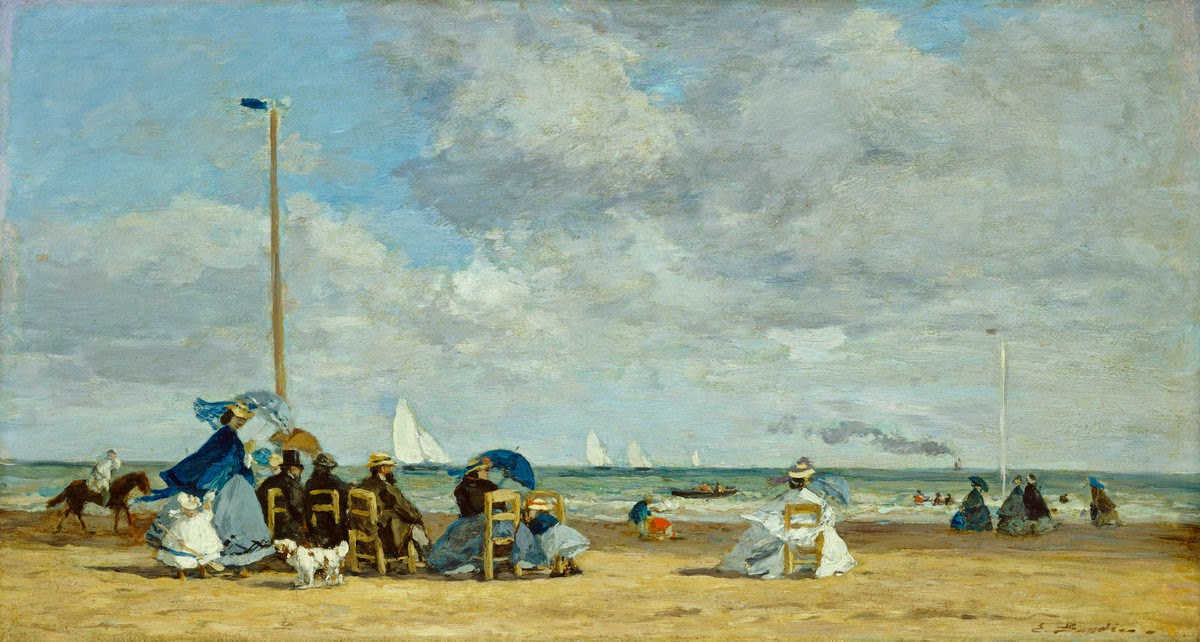Death in Venice is my all-time favorite movie (you can watch the whole movie on YouTube here). In this 1971 film directed by the Italian director Luchino Visconti, Dirk Bogarde gives a subtle and moving performance as the aging composer Gustav von Aschenbach who comes to the Venice Lido for a rest cure in the years before the First World War. The haunting cinematography is underscored by the glorious music of Mahler’s 3rd and 5th Symphonies, particularly the Adagietto from the Fifth Symphony, which is perfectly in synch with Aschenbach’s emotional journey.
Aschenbach
becomes enchanted by a beautiful young Polish boy, Tadzio, who is staying at
the same hotel (the Grand Hotel des Bains, which still exists though it is now
being turned into luxury apartments). As the older man falls more and more
under the boy’s spell, he becomes increasingly aware that the authorities are
covering up evidence of a growing cholera epidemic in Venice, and his pursuit
of Tadzio becomes more reckless as he fears for the boy’s life.
Visconti
and his cinematographer Pasqualino De Santis created beautiful images of the beach that are reminiscent
of the paintings of Eugène Boudin, with ladies’ parasols clustered by the edge
of the sea and their draperies fluttering in the breeze off the Adriatic.
 |
| On the Beach at Trouville, Eugene Boudin, 1864 |
The
movie is based on the short novel by Thomas Mann of the same name. This is how
Mann describes Aschenbach’s first morning on the Lido beach:
“The shallow grey sea was already gay with children wading, with swimmers, with figures in bright colors lying on the sand-banks with arms behind their heads. Some were rowing in little keelless boats painted red and blue, and laughing when they capsized. A long row of capanne [huts] ran down the beach, with platforms, where people sat as on verandas, and there was social life, with bustle and with indolent repose; visits were paid, amid much chatter, punctilious morning toilettes hobnobbed with comfortable and privileged dishabille. On the hard wet sand close to the sea figures in white bath-robes or loose wrappings in garish colors strolled up and down. A mammoth sand-hill had been built up on Aschenbach’s right, the work of children, who had stuck it full of tiny flags. Vendors of sea-shells, fruit, and cakes knelt beside their wares spread out on the sand.”
Visconti’s
movie is a faithful adaptation of Mann’s story except that in the book
Aschenbach is a writer rather than a composer. And his reason for going to
Venice is a growing fatigue with his disciplined writing life, which has made him feel oppressed by
the “care and duty to create.”
The unspoiled perfection of Tadzio brings back to the jaded writer the "ecstasy" that makes a book (or symphony or painting) resonate with an audience and fills them with the same joy with which the book was created. Unfortunately for Aschenbach, the cholera overtakes him before he is able to put this new passion into his work. He dies in his deck chair with his face turned towards Tadzio who, standing waist-deep and sunlit in the glittering water, "pointed outward as he hovered on before into an immensity of richest expectation.""He thought of his work, and the place where yesterday and again today he had been forced to lay it down, since it would not yield either to patient effort or to a swift coup de main. Again and again he had tried to break or untie the knot – only to retire at last from the attack with a shiver of repugnance. Yet the difficulty was not actually a great one; what sapped his strength was distaste for the task, betrayed by a fastidiousness he could no longer satisfy. In his youth, indeed, the nature and inmost essence of the literary gift had been, to him, this very scrupulosity; for it he had bridled and tempered his sensibilities, knowing full well that feeling is prone to be content with easy gains and blithe half-perfection. So now, perhaps, feeling, thus tyrannized, avenged itself by leaving him, refusing from now on to carry and wing his art and taking away with it all the ecstasy he had known in form and expression. Not that he was doing bad work. So much, at least, the years had brought him, that at any moment he might feel tranquilly assured of mastery. But he got no joy of it – not though a nation paid it homage. To him it seemed his work had ceased to be marked by that fiery play of fancy which is the product of joy, and more, and more potently, than any intrinsic content, forms in turn the joy of the receiving world.”



